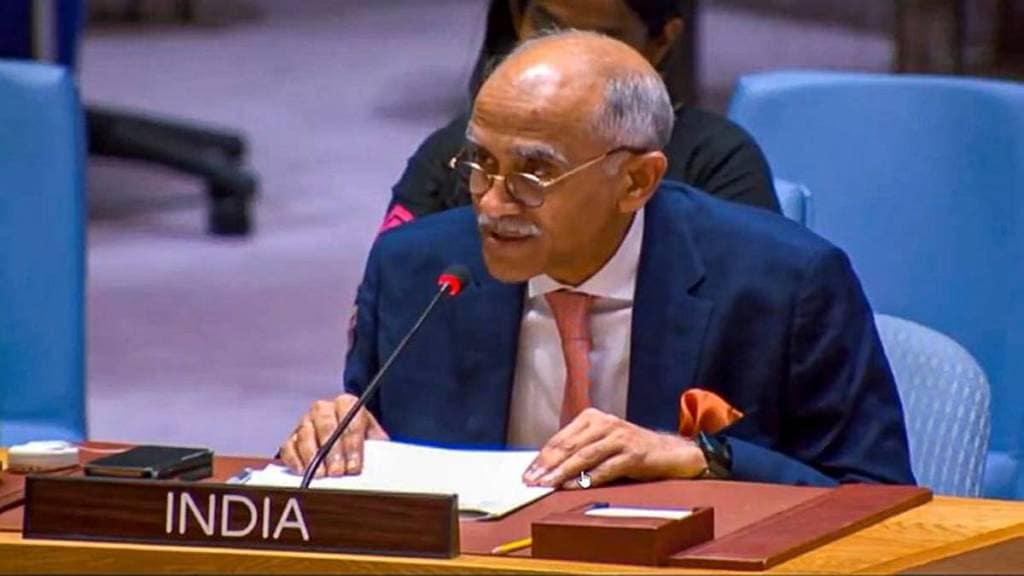India at UN: India delivered a strong response to Pakistan at the United Nations, blaming it for violating the spirit of the Indus Waters Treaty (IWT) by launching wars and conducting thousands of terror attacks over the decades. India’s Permanent Representative, Ambassador Parvathaneni Harish, while addressing a UN Security Council Arria Formula meeting on water protection during armed conflict, dismissed what he called Pakistan’s ”disinformation” on the 1960 treaty.
“More than 20,000 Indian lives have been lost due to cross-border terrorism in the last four decades,” Harish mentioned, highlighting the recent Pahalgam terror attack in which 26 civilians were killed. He reminded Pakistan of its continued aggression against India. He pointed out that despite entering into the IWT in good faith, ”Pakistan has repeatedly violated its spirit by inflicting three wars and sponsoring decades of terrorism.”
PR @AmbHarishP delivered India’s statement at the Arria Formula Meeting on Protecting Water in Armed Conflict – Protecting Civilian Lives. @MEAIndia @UN pic.twitter.com/SV0wzzW5XS
— India at UN, NY (@IndiaUNNewYork) May 23, 2025
India highlights four major aspects on core violations by Pakistan
- Violation of treaty spirit-Pakistan has waged three wars and has supported decades of terrorism against India, violating the trust of the treaty.
- Obstruction to treaty modernization-Despite India requests to make changes of outdated provisions to reflect modern realities like dam safety and clean energy, Pakistan has constantly blocked the dialogue.
- Threats to civilian infrastructure: Terror attacks like the strike on the Tulbul Navigation Project display Pakistan-linked militancy strikes water-related infrastructure.
- Continued use of terrorism under the civilian cover: Pakistan uses civilian platforms to cover its terrorist activities.
India demands an end to supporting terror
In response to the April 22 Pahalgam attack, India declared the suspension of the Indus Waters Treaty. However, the decision is not final and depends on Pakistan’s response. ”We are pausing our commitment to the Indus Water Treaty. But we might reconsider or reinstate it if Pakistan genuinely and permanently stops terrorism against India,’’ India stated.
Ambassador Harish further stated that India had formally requested updates to the treaty in view of current needs, including climate pressures, clean energy demands, and dam safety. Yet Pakistan has blocked all such proposals, even while allowing attacks like the one on the Tulbul Navigation Project in 2012.
In a separate UN debate on civilian safety in conflict zones, Harish criticised Pakistan for bringing the Kashmir issue while turning a blind eye to terrorism. ‘’A country that makes no distinction between terrorists and civilians has no standing to speak on protecting civilians,’’ he stated, citing attacks from 26/11 Mumbai to Pahalgam.
Tension continues to be high following India’s precision attack under Operation Sindoor, and although military hostilities have ceased, the diplomatic disagreement continues.
(With inputs from PTI)

